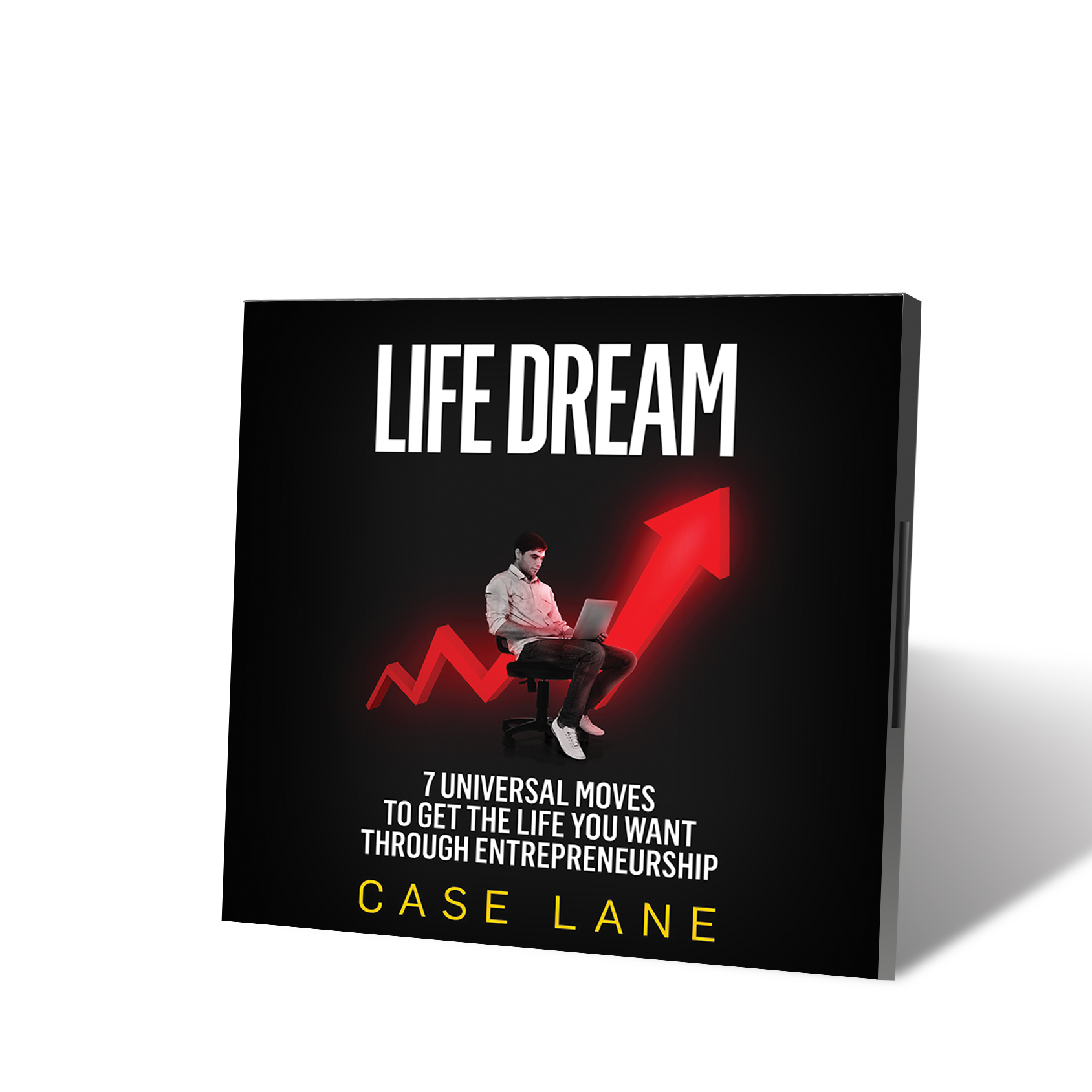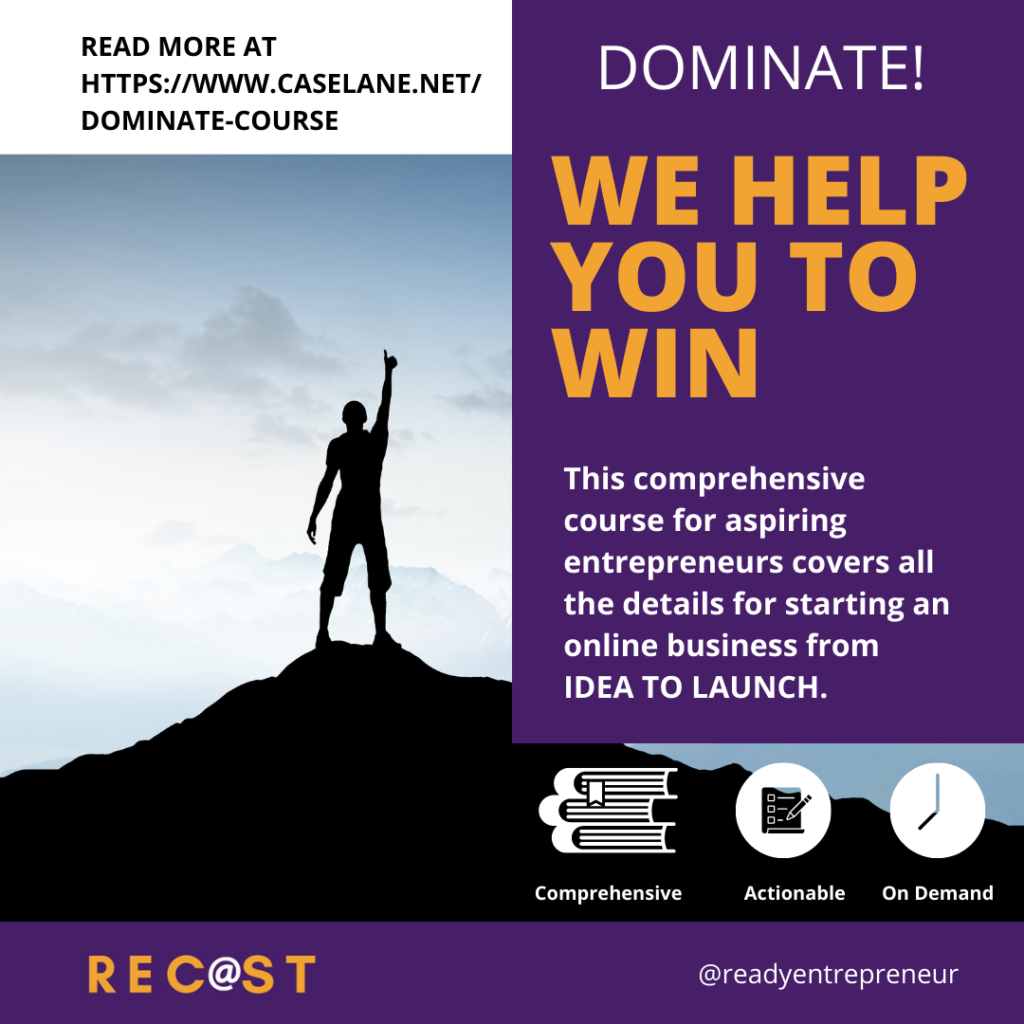The You CEO
The idea of a CEO usually brings up the vision of some kind of muckity-muck who wields enormous power and influence over well…her domain?But what does the term CEO actually mean?
Want a FREE PDF copy of this blog post?
Enter your email address to receive a free PDF copy of this blog post and all of our latest updates, news and great content from Ready Entrepreneur
Literally, CEO stands for Chief Executive Officer. That’s the literal and popular term for anyone who is the head of an organization including charities, social groups, and of course businesses. The CEO is the person ultimately responsible for all decisions regardless of who actually executes the actions on the ground.
When you set-up your business, you are the CEO and that’s a powerful and respected place to be.
If you think being CEO is a daunting challenge, and you’re an ordinary person, you may be surprised to realize you are already doing the job a CEO does, in the every day actions you take for your own life. And you may find that you are able to make the transition from CEO of your life to CEO of a business because you already have some of the core skills.
A CEO is generally responsible for the:
- Vision and corporate culture of the organization
- Strategy and overall growth plans
- Business decisions, like hiring staff, even if you delegate the task to someone else
- Technical tasks related to government regulations
These activities mirror the same work we do in going about our daily lives and managing our every day tasks. You are already doing the same activities as a big time CEO, which means you are ready to be CEO of your own enterprise.
Vision and Culture
As a CEO, your vision is the overall plan for your organization.
Examples from corporate American include Google’s unofficial motto “don’t be evil,” which is the popular conceptualization of the company’s mission. The company’s more official statement is “to organize the world’s information and make it universally accessible and useful.” American Express says it wants to be “the world’s most respected service brand.” Harley-Davidson says they “provide extraordinary motorcycles and customer experiences.”
A vision helps the company project its image to the world. As a person, you can emulate corporate behavior and have a vision for your life. With your personal vision you set an overall theme for how you function. My vision as an entrepreneur is “to be part of the solution,” which means I focus my activities on helping people start their own businesses. Since I want to be part of the solution, I focus on successful outcomes, and avoid the discussions and complaints that only talk about problems.
When you are CEO you think of your ultimate outcome. What would your company want to say to everyone about the value you deliver to the world? As a person, you may consider your own contribution to humanity. As you build your own business, the concepts align.
Strategy
The strategy for your personal organization is how you will execute on your vision. In other words, how will you do what you really want to do? If you think of your vision as your destination, your strategy is how you will get there. Will you fly, take a train, drive, ride a bike, hitchhike, walk? One of those options is your strategy.

Strategy is not the same as decision. Using the travel to destination analogy, when developing your strategy, you may decide to drive to the destination. But there is a scenic route and a more direct route, and maybe a route that avoids toll roads and so on. The decision is the route you will take, which you decide after you have selected a transportation strategy.
In my case, I have chosen to use broad communication to help deliver my vision. I deliver useful information in written, audio and video form to those pursuing the goal of obtaining a dream lifestyle through entrepreneurship.
In everyday life, you may have a strategy to eat healthy foods or exercise frequently or try to get more responsibility at work. Each strategy is tied to the ultimate vision of achieving your life’s objectives. If you can think about how you would achieve your personal goals, you can do the same for your business, and follow the success of the best corporate CEOs.
Decisions
People make decisions all day that affect the operation of their personal organizations including children, pets, colleagues and neighbors. Just like a corporate CEO, the selection of these decisions is often driven by a personal vision, culture, and the originally selected strategy for executing on the vision.
When you decide what to eat you impact your budgeting, time management and long-term health. Even where you shop for food could be based on your beliefs such as convenience over price, or vice versa. These micro-decisions have a basis in much stronger macro ideas about the world you want to live in.
If you have already set up a clear vision and strategy for your life, you can make these decisions much easier.
When you establish your business, you set up your vision and strategy for your business idea, and the answers to the decisions you make come from that foundation.
Mandatory Administrative Tasks
CEOs also have decisions made for them in the form of administrative and regulatory tasks that must be completed to avoid legal consequences.
You may think being CEO is overwhelming. But you have similar demands in your personal life. You have to register at DMV, pay your taxes, cover mortgage payments, or manage debt. Ignoring any of these types of activities could have serious repercussions for how you live your life. You had to find out what all the rules were and make sure you comply. You could do the same as CEO for your own company.
A CEO’s job is to oversee the vision, culture, strategy and decisions that lead an organization forward to accomplish its goals. As a human being managing day-to-day life, you are already a CEO fulfilling many of the same tasks.
You have a vision of wanting professional growth, financial security and lifestyle freedom. You have a strategy of getting to that vision by starting your own business, and being CEO of what initially would be a small company. And now you make decisions to execute on that strategy.
The number one decision is to get started. You know it’s time to end your inertia and pull that business idea off the shelf and get to work on making it happen. The ‘You’ CEO is possible and achievable because you already have the skills you need to complete the tasks. You only need to encourage yourself to begin.
MORE RESOURCES
Want help to get started? Click the link to check out free video training series for wantrepreneurs. This training is for those of you who have always wanted to start a business but need to find the confidence, time and money to get started.
Facing money challenges? Download my book: A Better Plan: Spend to Live, Save to Wealth: A Real Life Guide to Building Wealth from Nothing and Living a Life Without Financial Fear

For AMAZON (Kindle):
https://www.amazon.com/Better-Plan-Building-Nothing-Financial-ebook/dp/B06W5GXLP1/
For IBOOKS (Apple products):
https://itunes.apple.com/us/book/better-plan-real-life-guide-to-building-wealth-from/id1222099554
For SMASHWORDS (all formats):
https://www.smashwords.com/books/view/705684
Want to discuss the content of this blog or other ideas? Send me an email: contactcase(at)readyentrepreneur(dot)com
Freedom, Satisfaction, Security – Do you like those words?
Three Reasons Why You Should Get your Business out of your Head and into the World
“You are the average of the five people you spend the most time with.” That is a line credited to motivational speaker Jim Rohn who basically said that given the law of averages – any given situation would be the average of all outcomes. When it comes to personal relationships is his pronouncement a harsh or valid view of your friends, family and co-workers?
When people who succeed make a move towards their goals, they inevitably pull away from those who are holding them back. They seek out people who are more like them, high achievers who set goals and work to pursue them. They try to avoid spending more time with people who are bringing them down.
The law of averages basically means given many, many trials of the same thing, the results pretty much even out over time. If you take this definition into personal relationships, you could interpret the idea as meaning when you are working with large numbers, if you do what everyone around you is doing, you are likely to end up just like them. But if you want to break away, you have to push yourself to find the people who are where you want to be.
Most people who decide to break away are looking at three great reasons for doing so – Satisfaction, Security and Freedom. Three popular words associated with having your own business.
If you have business ideas in your head, or have ever wanted to own your own business, you are probably seeking professional satisfaction, financial security and lifestyle freedom. Those are three of the important reasons to be your own boss.
Professional Satisfaction
Having professional satisfaction means you are doing the work you really want to do. Whether you are creating online, or working with your hands, or running a restaurant – every day presents new and exciting challenges that propel you forward. Instead of the space you are in with work you no longer enjoy, you get up feeling ready to learn and contribute to your own enterprise. The results double back to you.
Many people are dissatisfied with the daily grind of their jobs. When you have your own business, every minute is dedicated to your own advancement. All of the business activities, benefit you, and your goals, dreams and objectives. Instead of satisfying someone else’s work agenda, you dedicate your time to your own. The result is the difference between being fulfillment and hollowness.
Financial Security
Many people want their own business to ensure control of their finances. When you first start a business, the goal may be difficult to achieve because you are investing directly in setting up your enterprise. But financial security is not only about having a million dollars in the bank.
Financial security also means knowing if you will have one dollar in the bank. When you work for someone else, you typically have no insight into whether or not you will have a job the next day. People are often surprised by layoff notices, and they are unaware of the true financial state of the company. You are basing your activities – family vacation, education fund, retirement – on decisions that will be made by others without consulting you. If you ran your own business, you would make all those decisions yourself.
Of course, running your own business can also be financially insecure because you take on increased risk. But again you would be aware of those risks and can predict and plan for them. Risks you can see are certainly better than ones that come up and surprise you later. And when you own the business, those risks rapidly turn into rewards that change your life forever.
Lifestyle Freedom
The greatest benefit to running your own business is the freedom to manage your own lifestyle. Do you have to go to the doctor? Just go.
Do you want to do your holiday shopping on a Tuesday afternoon? Do it.
Do you want to take your summer vacation in April? Enjoy.
All the decisions that are currently dictated to you by someone else’s rules disappear when you have your own business.
You too could have a specific work timetable, if you were in charge of the schedule in the first place.
Satisfaction, Security, Freedom
Starting your own business helps you achieve the satisfaction, security and freedom you are looking for. If the idea of starting your own business has already been in your head, it’s time to take action and begin to build towards your controlled future.
Check out free video training series for wantrepreneurs if you would like some help in getting started. The training is for those of you who have always wanted to start a business but need to find the confidence, time and money to get started.
Facing money challenges? Get my book: A Better Plan: Spend to Live, Save to Wealth: A Real Life Guide to Building Wealth from Nothing and Living a Life Without Financial Fear

For Amazon (Kindle): Click Here
For iBooks (Apple products): Click Here
For Smashwords (all formats): Click Here
Want to discuss the content of this blog or other ideas? Send me an email to: contactcase(at)readyentrepreneur(dot)com





